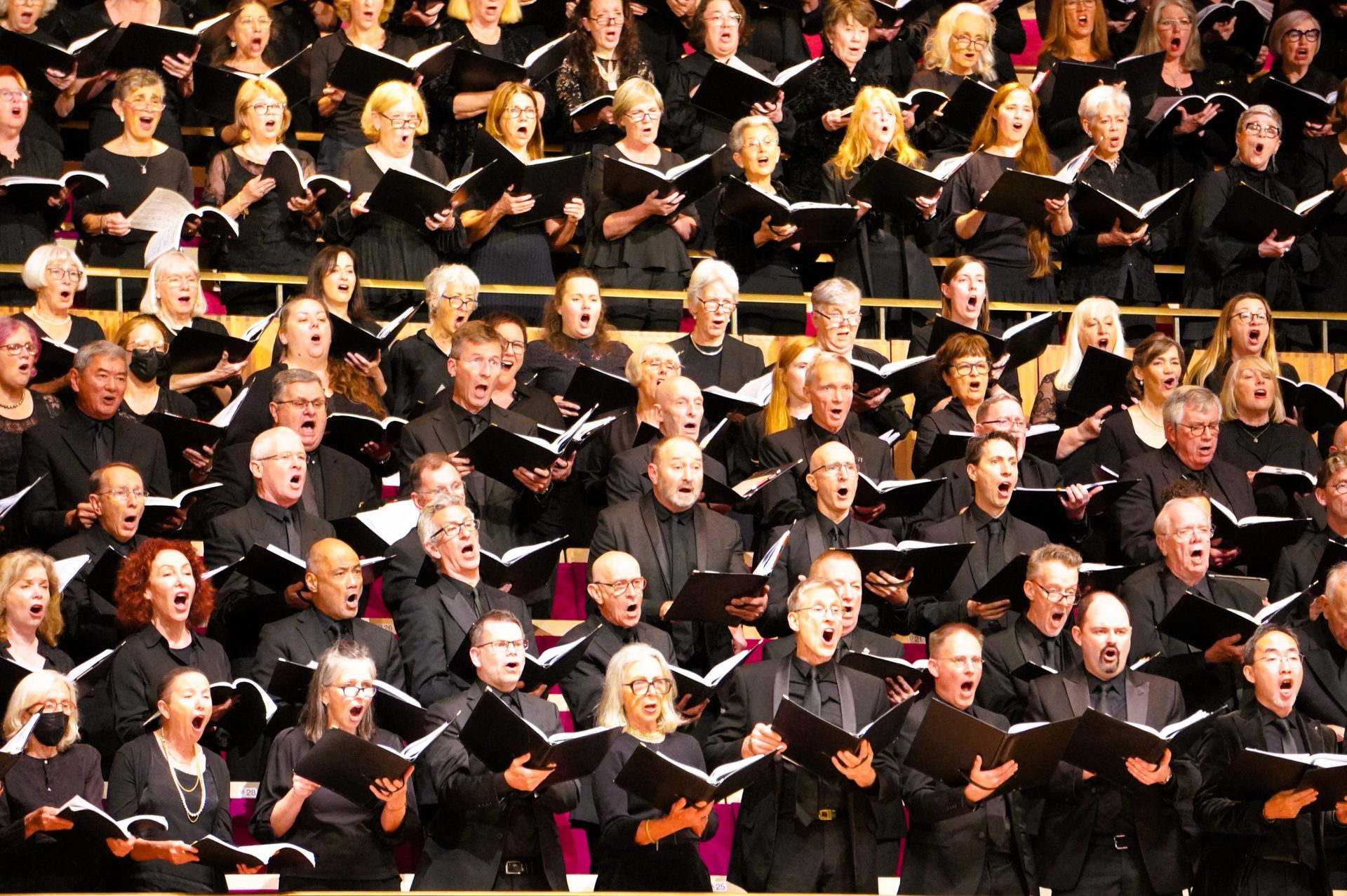Life breathed into an old form.
In the 1710s, Handel invented the English Oratorio to get around a law that forbade the performance of operas during Lent. Haydn followed some eighty years later with his Die Schöpfung and, in that fine tradition, Mendelssohn gave us his Elijah. The reception was mixed. George Bernard Shaw mocked the British “delight in Mendelssohn’s exquisite prettiness” and another critic, speaking a century later, called Elijah “hopelessly, awfully, irremediably mid-Victorian”. But last night, Shaw’s charge of bourgeois vapidity rang hollow.
The Sydney Philharmonia Orchestra joined forces with the Sydney Philharmonia Choir under the direction of Brett Weymark. Teddy Tahu Rhodes emerges as Elijah with a forceful declamation that harks back to the introit of a Renaissance mass. It was clear as a bell. When he prophesises a drought, the brass blares out a devil’s interval. Then we have Mendelssohn’s homage to the Baroque – a fugal overture that builds up ever so gradually.
The chorus, marked in true German Romantic tradition as “Das Volk”, interjects in media res, a la Mozart’s Requiem. But much of the harmonic tension is still provided by the strings. Chromatic passages abound and the chorus did well in maintaining the independence of each section. There was much variety in dynamics, as in the “Yet doth the Lord see it not” and “Let him be God” choruses.
The female and male voices then split with “Lord, bow thine ear to our prayer”, not so much singing as chanting, with a modal flavour broken only by a flowery soprano duet. As always, Andrew Goodwin distinguished himself in Obadiah’s recitative with an animated Lieder-like voice, good articulation and strong projection. The recitatives hark back to the Baroque, laden as they are with falling fourths.
Then we have Celeste Lazarenko, fresh from her performance in Heavenly Sopranos, as “The Widow”. To reflect this figure of great pathos, the oboes, performed by Aaron Reichlet and Mark Bruwel, play the role of the vox humana in some brief but poignant solo parts. Her voice dissipates into thin air as she laments the death of her son – “no breath left in him”.
Some slips in timing emerged here within the chorus. But a highlight was when the chorus channelled the soundworld of the pagans. A double chorus invokes Baal with a zeal that turns to frenzy, much like the old Renaissance battaglias. The chorus is pitted against each other. Shifting metres, quickened tempi and arpeggios abound amid a riotous cacophony of strings. Here is music that excites the mind of the student as much as the ear of the listener. And it soon becomes apparent that the Sydney Philharmonia Choir finds itself equally at home in the two roles that Mendelssohn has given it – the heckling bloodthirsty mob of Bach’s St John’s Passion, and the inquiring chorus of a Greek drama which pauses to comment on the scene that has unfolded.
Members of the Pacific Opera Studio then form a quartet at the back of the Concert Hall to perform a delightful Bachian chorale. But the frenzy returns. The bass strings despatch a series of shimmering tremolos (think back to Bach’s Heimmel reiße) until The People declare that “we will have no other gods before the Lord”. It ends with a tierce de picarde that smiles upon its audience, before the young treble, Charlie Swan, joins David Drury in the organ loft for a dialogue with Obadiah and Elijah. But then Mendelssohn leaves us with an admonition “But the Lord is above them” in the form of an overwhelming Wagnerian interjection from the chorus, with the bass beginning and the voices overlaying by an interval of only a semitone! It is clear that ideas are taken from the opera halls of Europe and appropriated from the profane to the sacred. But why must the devil have the best tunes?
Drury could be heard closing it all with a full-bodied chord on the organ. Drury himself had educated generations of singers and musicians, doubtless some of whom were in the choir.
If the first half was burdened with the austerity of the Old Testament, with the second half comes a Lutheran flash of grace. The dramatic pace also peters down. It begins with something of a sarabande by Lazarenko that has the effect of a lullaby. The flash of grace could be felt viscerally in the contrapuntal chorus, “He that shall endure to the end shall be saved”.
There are also subtle quotes from the second halves of the great Passions. In the “It is enough” aria, Mendelssohn takes Elijah away from the trope of the stolid Old Testament hero and makes him human. Teddy Tahu Rhodes negotiated the twists and turns of Elijah’s saturnine character with ease. It is hard not to hear echoes of Bach’s “Es ist Vollbracht” in “It is enough”. And in Rhodes’ more bittersweet arioso “For the mountains shall depart”, we can sense something of the warmth of the viola d’amore introduction in the “Betrachte” from Bach’s Matthaus Passion.
One of the highlights of this performance was the use of space in the Concert Hall. Weymark positions the sopranos from Pacific Opera on opposite galleries in the Concert Hall in the “Above Him stood the Seraphim”. That was deliberate. The text speaks of two seraphims crying to each other. It harks back to the Duo Seraphim, where Monteverdi had the voices echo one another on either side of St Mark’s. Here we see Mendelssohn as a classicising Romantic, where nothing is truly new and life is breathed into old forms. That is what the Sydney Philharmonia Choir achieved last night.
